Partners
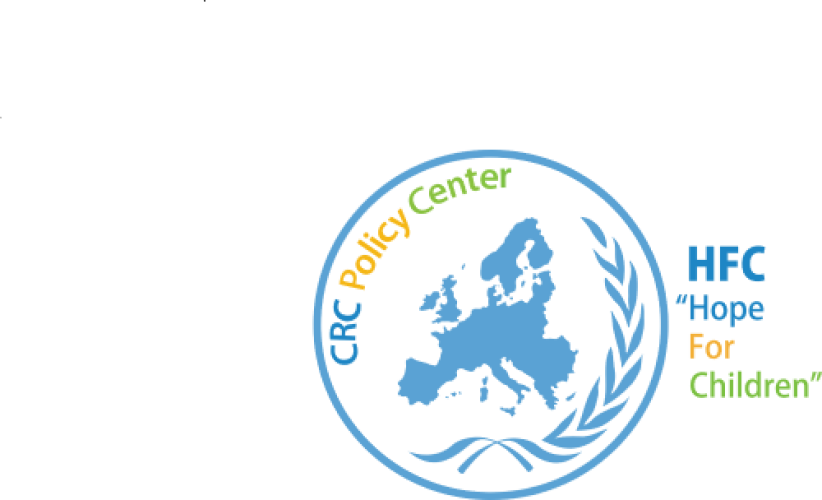
"Hope For Children" CRC Policy Center (HIT Project Coordinator)
“Hope For Children” CRC Policy Center (HFC) is an Independent, International and Humanitarian Institution with headquarters in Nicosia, Cyprus. Active in the fields of research, advisory services, advocacy and policy, design and implementation of grassroot programmes.
Our mission is to contribute to the protection and promotion of the rights of the child and to support the active participation of children and youth in society. Our institution aims to advocate and to protect children’s rights based on the standards and principles of the UN Convention on the Rights of the Child and European Union Law.
HFC's programmes, services and projects include:
The operation of Homes for Hope, shelters for unaccompanied children offering rehabilitation, integration and durable solution services. The shelters were established with the approval of Social Welfare Services, which continuously collaborates with our institution and are funded by the Asylum, Migration and Integration Fund of the Ministry of Interior in Cyprus.
The Foster Care programme aiming to recruit, train, and assess potential foster parents to undertake the care of children in need of protection.
The operating of the first Children’s House in the Cyprus based on the multidisciplinary inter-agency cooperation Barnahus model for cases of sexual abuse of children.
Operation of the European Helpline for the Support of Children and Adolescents 116111; and the European Hotline for Missing Children 116000.
The CRC Campus Clubs to educate children on their rights as enshrined in the UN Convention on the Rights of the Child, highlighting current issues young people face and ways to ensure their rights are acknowledged and observed.
.jpg)
RINOVA
Rinova is a training, development and management services company, supporting our partners to design, deliver and improve the services that they offer in the areas where we have worked for over 30 years, namely:
We keep ourselves up to date with policy initiatives, programmes and policy in these areas - but our passion is to respond to them by working 'bottom up' with our partners - designing and implementing solutions, extracting and publicising the lessons.
Our values and governance:
Rinova is a social enterprise, in that we are a business with social objectives that has no external shareholders. By adding value to our partners and providing our partners and funders with the best customer service, we aim to make surpluses which are re-invested to support our social goals.
We have a 'John Lewis' approach to company ownership and operate according to the principles of social enterprise. Our staff are our members through the majority ownership of the company by an Employee Ownership Trust. We are full members of the Employee Ownership Association.

Frederick University - Mobile Devices Laboratory
Frederick University was established after a decision by the Council of Ministers of the Republic of Cyprus on 12th September 2007. Although the establishment of the University is relatively recent, the organisation has a long history of more than 40 years in higher education and the university has a strong focus on academic research, being one of the leading research organizations in the country. The mission of Frederick University is the provision of learning opportunities through teaching and research in the areas of science, technology, literature, and the arts, as well as a systematic contribution to the wider social context.
In particular, the main objectives of Frederick University are:
- the promotion of science, knowledge and education through teaching and research aiming at the enhancement of society in general,
- the dissemination, application and scientific exchange of knowledge, and
- the provision of high-quality, internationally-recognized undergraduate and postgraduate education
The Mobile Devices Laboratory (MDL) was established in July 2012 under the Computer Science and Engineering Department of Frederick University, Cyprus having as major goal to promote research and development in the fields of Computer Networks & Systems (with major focus on Web-based, Smart and Mobile Computing Systems), Web and Cloud Computing and Artificial Intelligence. The research at the 12-seat MDL laboratory is supported by using modern technological equipment that includes a cloud of 40+ Smartphones and Tablets, a cabinet/rack-mounted CISCO routers and switches, a structured internal computer network for pilot testbeds, a number of testbed computer workstations, electronic and computing devices as well as web and virtual platforms.
Currently, MDL employees one post-doctoral researcher, one PhD student, three postgraduate students and one undergraduate student. MDL research team has more than 50 peer-reviewed publications in international journal and conferences. MDL development team developed or participated in the development of several applications, systems and platforms such as the SmartLab (smartlab.cs.ucy.ac.cy), Vectormap (http://tinyurl.com/oyhqeku) and SmartP2P (smartp2p.cs.ucy.ac.cy and published more than 20 multi-platform applications in various stores (Google Play, Microsoft Apps & Games, Apple store) with more than 200,000 downloads. MDL team also also boasts several distinctions such as an Android app that topped Google Play store’s top free music and audio category for several weeks, smartphone applications that won two local Microsoft Hackathon Competitions, two National Microsoft Imagine cup competitions, ranked in the top-33 in the World Online Imagine Cup Semi-final and participated in the World Finals at Seattle, USA in 2016. MDL postgraduate students won the first award in the Hellenic Bank – StudentLife Awards 2016 and the Youth Award of Youth Board of Cyprus 2016 in the Innovation Category.
MDL is also participating in several national and international research projects including Integrated and Innovation projects of the local Research Promotion Foundation, EU JUSTICE and EU LIFE with total funds more than 2M euro in the last two years. Additionally, MDL established collaborations with several software companies securing in this way various industrial grants and public procurements, such as the Microsoft Open Government Data Initiative Grant. The laboratory has an extensive profile of international and national technology transfer activities to the industry including Polar Effect (Netherlands), MTN Telco (Cyprus/Africa), CYTA Telco (Cyprus), NetInfo (Cyprus), Microsoft (Greece).
MDL is also highly active in raising social-awareness through research and development by implementing more than 15 specialized web and mobile platforms and applications, some project are: (1) the ChildRec – a smartphone application that is able to recognize missing children by just using the smartphone’s camera, (2) the Eyes4U project – a real-time aggressive behavior detection system that recognizes aggressiveness and violence using an intelligent heuristic and the Kinect console, the StepFree interactive-informative application to help people with disabilities and (3) the Judex+ online platform that focus on raising awareness regarding children sexual abuse and (4) the “Kiki and the Children’s House” smartphone application developed to support professionals working with young children in judicial procedures in cases of sexual violence. (5) “Incubator of Love” (“Thermokoitida Agapis)” website that raises awareness, provides support and empowers families affected by prematurity. (6) “DreamFighters” role-playing application raises awareness regarding gender stereotypes and try to help teenagers fight against bullies and dream crushers. Website: http://mdl.frederick.ac.cy/
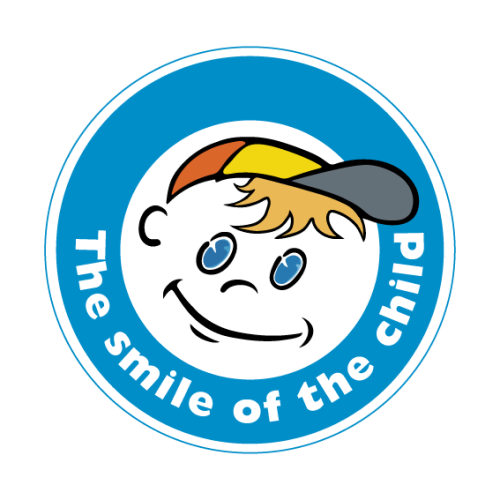
The Smile of the Child
“The Smile of the Child” is the largest internationally recognized non-profit, non-governmental Organization in Greece in the critical field of child protection, support of children and families with children in need, as well as free public health service for children, both in prevention and treatment.
The Organization started its operations in 1996 by Costas Yannopoulos, President of the Board of Directors, inspired by the wish of well-being for all children in the world, expressed by his 10-year old son Andreas before he succumbed to brain cancer in late 1995. Over 21 years of activities “The Smile” has made a difference for more than 1.200.000 children and their families in Greece.
“The Smile” currently operates with approximately 2.500 active volunteers on a daily basis and more than 450 specialized personnel and is financed through donations from sponsors and the broad public in Greece that is familiar with the Organization and appreciates its action for all children, without exception and without distinction of background, origin, religion or any other criterion.
The operational commitment of “The Smile of the Child” is structured along four main groups of children in need of protection: children victims of violence, children victims of disappearance, children with serious health problems and children who live in poverty or are threatened by poverty. In order to address the different needs of these children “The Smile” implements a variety of actions and provides services in the areas of prevention, intervention and therapy.

CEPS PROJECTES SOCIALS
CEPS PROJECTES SOCIALS is a non-profit association founded in 1994 and has 230 professionals working mainly in the Catalan and Spanish territories, with projects developed in Latin America and Europe. It is registered as “Associació per a la creació d’estudis i projectes socials”.
The mission of our organization is to facilitate access to the social and cultural capital of a community to people through their empowerment, the promotion of cohesion and social inclusion and the fight against social inequalities. In order to achieve this, CEPS PROJECTES SOCIALS defines its frame of intervention and management (training, education, community, international projects) in a model based in a clear balance between efficiency and innovation.
A strategic and social view of the use of technologies is put into practice, new ways of participation are tested and strategic partnerships are developed at a local and international level. Evaluation and creativity blend together into inspiring solutions for the community.
CEPS PROJECTES SOCIALS is responsible for the management and implementation of socio-educational activities for children, young people and adults, further training for professionals and innovative research and development in new projects and practices.
The Association is determined to ensure that all necessary steps are taken to protect children and young people, who are in its care or participate in its activities, from harm. Its child protection policy establishes the Association’s position, role and responsibilities and clarifies what is expected from everybody involved in the Association.
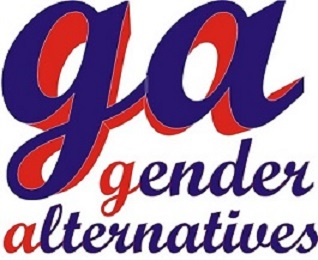
Gender Alternatives Foundation
The Gender Alternatives Foundation (GAF) is a non-government organization which was established in 2011 by a team of professionals engaged in the promotion of women and girls’ human rights. We are based in Plovdiv, Bulgaria.
GAF’s mission is to work towards the protection and empowerment of women and girls in all spheres of public and private life so that they realize their potential in a just and unbiased society. Through our guiding principle, we strive to address a number of structural inequalities which are layered in social organization and mindset, and present the building blocks of gender based discrimination and violence. The issues we devote our efforts to are prevention and protection against domestic violence, trafficking in human beings and promotion of sexual and reproductive health and rights.
Our target groups are women and girls victims of gender-based violence and discrimination. These include women and girls from rural areas, minority women; victims of human trafficking and sexual exploitation, foreign and migrant women; disabled women; elderly women; and women victims of multiple discrimination.
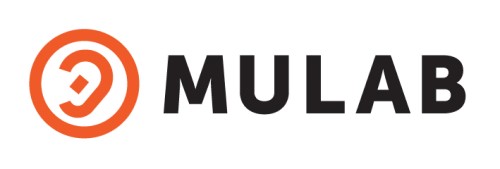
Associazione Culturale Mulab
Mulab is a No Profit Association which operates in the fields of research, promotion and production, network, consulting and vocational training in the Cultural Industry.
An association of performing arts professionals and experts working in the field of culture which uses its experience to help the vocational training and professional recognition of those people who want to work in this field. This because, for preparing a performance, even the simplest one, there are many problems which can be solved only by expert professionals.
Mulab has been approaching the world of culture and performing arts in an international dimension for ten years, trying to find solutions of development and improvement in the best foreign models, where a well working cultural system generates social wellness and linked activities.
Having this aim, Mulab has been part, along the years, of many European Projects, from research to mobility, from promotion to Network creation, from vocational training to social inclusion. These are all actions aimed to build an experience which is not a temporary solution to a present problem, but the basis for a stronger and shared future.

Collage Arts
Collage Arts is a leading arts development, training and creative regeneration charity based in heart of Haringey’s Cultural Quarter. For over 30 years, the organisation has created opportunities for greater access and participation in the arts and creative industries for the whole community through a range of skills and enterprise programmes, support services, arts development and heritage projects, facilities and resources.
We seek to provide greater access and support to under-represented sections of the community including: economically inactive young people, black and minority ethnic communities, women, people with disabilities, young people leaving care, LGBT communities and ex-offenders, by offering skills, experience and opportunities in creative and digital media, film, music, photography, performing arts and visual arts, which can lead onto better career progression routes in further and higher education, employment and entrepreneurship.
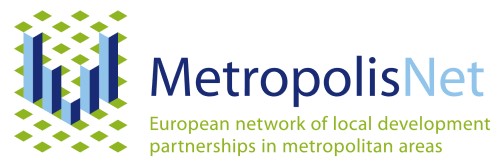
MetropolisNet
MetropolisNet is a unique network of different types of organisations developing and implementing local strategies for employment and social inclusion in a number of European cities.
MetropolisNet evolved from a transnational network created to support EU local employment initiatives, including Territorial Employment Pacts, in 1998. Since March 2009 has been registered as an official EEIG (European Economic Interest Group).
MetropolisNet assists inter-city and inter-organisation collaboration in promoting the local, regional, and transnational dimensions of EU policies on employment, social inclusion and local development. It links large European cities in the context of the EU 2020 strategy.
MetropolisNet is a European organisation dealing with the topics of local development through exchange, knowledge and experimentation of strategies, projects and programmes across the EU.